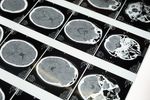Tending to your gut bacteria is one of the most important parts of keeping your immune system strong and your whole body functioning well. Unfortunately, this becomes a little more challenging as you get older. One reason is that as you age, digestive secretions decrease — in particular, gastric acid and pancreatic enzymes. This makes digestion more difficult and messes up the balance of the microbiome.
On top of that, other potential gut disruptors that can wreak further havoc on the microbiome — like certain medications, too much sugar and processed foods and not enough pre- and probiotics.
A messed-up microbiome can, of course, contribute to discomfort. But even worse, it can result in leaky gut — microscopic holes in the gut wall that allow poorly digested food particles and toxic specks (called metabolites) to “leak” through. This can cause inflammation and pain throughout the body.
The upshot: A “bad stomach” is not something to ignore. It’s a call to action. Pay attention. You need to make some changes. If you’re experiencing stomach issues, and wondering how to heal your gut, the following approaches should help.
RELATED: 6 Ways an Out-of-Balance Gut Affects Your Well-Being
1. Try an elimination diet.
Cut sugar, processed foods, all grains (including soy and corn) and dairy from your diet for two weeks. See how your stomach feels. Reintroduce possible offenders one at a time, with a big helping of the experimental food at lunch and dinner. This is a surefire way to see if a particular food group is irritating your system.
Then (and this sounds obvious, but a lot of people don’t do it) stop eating the problematic food! Pretend it’s poison, and get it out of your life. If you absolutely can’t let it go, use digestive enzymes when you eat the danger-food (like Lactaid tablets, if dairy is trouble). But the best thing — and the easiest way to eliminate gas, bloating and other discomforts — is to simply cut out the food permanently, or at least until your microbiome has improved.
2. Take bitters or apple cider vinegar before meals.
Either one can help with digestion. At the start of a meal, a tablespoon of Bragg’s apple cider vinegar (you can mix it into water) or a slug of Swedish bitters (Nature Works makes a good one) stimulates your natural digestive enzymes. Keep a bottle at work; it doesn’t need refrigeration.
3. Try some antimicrobial herbal supplements.
Antimicrobial herbal supplements can decrease bad bacteria and create a healthier gut. Look for a formula that combines some of the following: berberine, grapefruit seed extract, oregano oil, olive leaf extract, wormwood, black walnut, bearberry extract, barberry extract. We recommend our Gut Complex supplements, filled with ingredients to help balance and support your microbiome.
4. Give your gut a rest.
As a habit, an early dinner and a late breakfast will improve your digestion and the health of your microbiome. Leave a minimum of 12 hours between your last meal in the evening and your first the next day, and ideally 16 hours or more.
RELATED: All About Intermittent Fasting
5. Get tested for leaky gut.
If you have a functional medicine doctor, you can ask for an assessment called a GI-MAP (gastrointestinal microbial assay plus). This checks bacteria and zonulin levels. Zonulin is a protein molecule used to measure intestinal permeability (aka leaky gut). The test may not yet be available in every state.




